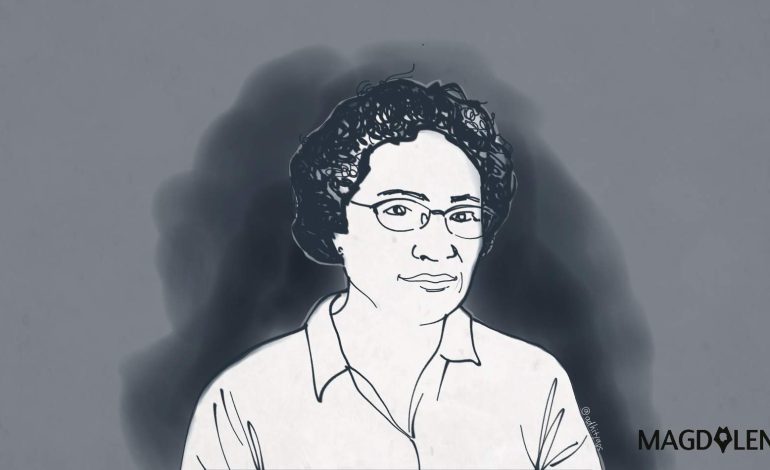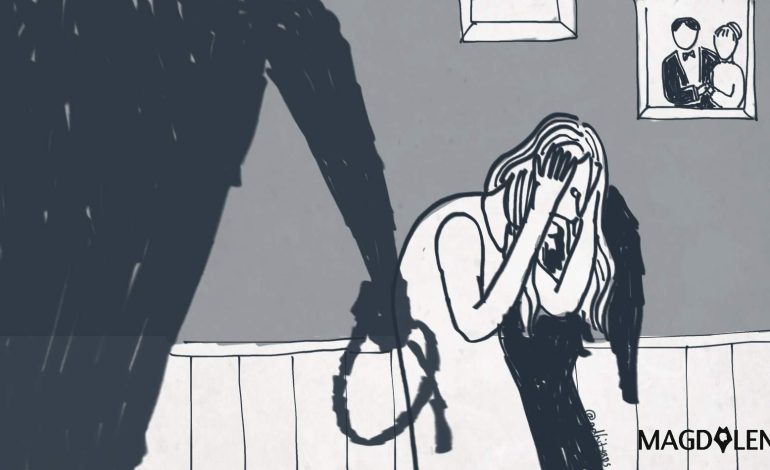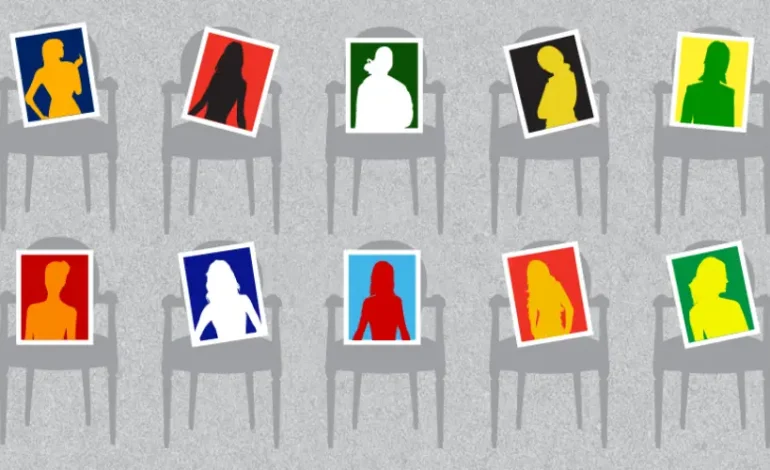How a Feminist Preacher Led Her Church to Become a Champion of Gender Equality


Reverend Mery Kolimon is not your typical clergywoman. Between giving sermons and ensuring the wellbeing of her congregations in East Nusa Tenggara (NTT), she helped revolutionized the second largest protestant church in Indonesia, turning what is traditionally a patriarchal institution into a place that empowers women and champions gender equality.
Rev. Mery, as she is affectionately called, is the first woman elected as the Chairwoman of Synod Assembly of Christian Evangelical Church in Timor (GMIT) since it was established in 1947. In 2015, she defeated her two male competitors with more than half of the votes going for her.
“My reflection is that now the church is ready to recognize woman leadership,” she told Magdalene and a few other journalists during a visit to GMIT with non-profit development organization Oxfam.
She was first nominated in 2011, but didn’t garner enough votes. Seven-month pregnant then, she thought she wasn’t ready, but her friends convinced her that the church needed change and a progressive leadership.
“So I convinced myself that if my fellow female ministers can serve their congregants, going to remote areas while they’re pregnant, then why can’t I?” she said.
When she was elected two years ago, she pointed out that woman leadership is not enough – it has to be a feminist leadership.
“Feminist leadership is a participatory leadership that believes in equality in the church and is open to criticism,” she said.
She firmly believes that the church should always be relevant to their context, to the place where they stand.
“East Nusa Tenggara is the third poorest area in Indonesia and Christianity has been here for over 400 years. We should be questioning this religious society: If there are still a lot of victims of human trafficking; if malnutrition cases are still high and post-natal deaths are numerous – has the church really been ‘a church’ in the first place?”
“People get upset by questions like that, but I believe the church has to be constantly disturbed so that it won’t get too comfortable, so that it won’t build an extravagant building in the midst of people’s misery,” she noted.
When asked what inspired her calling to serve at the church and to advocate gender issues, Reverend Mery cited her mother as the most influential figure in her life.
“Since I was a kid, my mother, Sarlin, had always mentioned the word ‘gender’,” she said. Her mother only managed to finish Primary School, but she took part as a student at Alpha Omega – a community empowerment program conducted by GMIT.
Growing up with a sister and two brothers, her mother had been orphaned since she was two years old. Faced with the responsibility as a breadwinner, her grandmother decided to put to school the two sons, leaving the girls to help her sell vegetables at the market.
“From that time on, my mother vowed that if one day she had kids, she would work hard to get them to finish their school,” she said.
Her mother sold honey to help with the kids’ education, and decades later Rev. Mery, the eldest of seven children, is now leading over 1 million congregations in NTT.
Transforming the Church
Out of the 1,300 ministers in GMIT, 60 percent are female, but Rev. Mery warned against being easily satisfied by numbers.
“We’re often trapped in the politics of numbers. Even if the number of women are plenty, but if in practice they still have a patriarchal mindset, it won’t change a thing. If the church is still too busy taking care of itself and are ignorant of humanitarian issues, what’s the use?”
The key is to keep challenging themselves, she said, and make sure that the higher number of women ministers should translate to better service to improve people’s lives in NTT, she said.
“East Nusa Tenggara is the third poorest area in Indonesia and Christianity has been here for over 400 years…. If there are still a lot of victims of human trafficking; if malnutrition cases are still high and post-natal deaths are numerous – has the church really been ‘a church’ in the first place?”
Each minister is responsible to reach out to 10 members of the congregations, and in the beginning, she recalled, it was difficult to imagine women ministers doing this job, particularly visiting those who live in remote areas, many of which do not even have electricity, until late at night.
In the beginning there was some skepticism over the effectiveness of sending women pastors to the congregants. But, once they started their rounds – riding their motorcycles often with a child in tow from one place to another, braving floods and all – people eventually requested the women ministers, saying they were more “loyal” to the congregants, Rev. Mery recalled.
In late 1997 when she served in Bijeli village, Timor, Rev. Mery noticed the strict gender-role division in its congregation assembly. The Assembly recognizes two roles of a clergyperson: as a penatua and as a diaken. Penatua is the classic clergy role of giving sermons and it is often seen as a more important and distinguished role, while diaken is the role to take care of the sick and poor people.
“At the time those who were assigned as penatua were all male, while women were assigned as diaken,” she said. “I realized the rigid gender construction in the church so I asked them, ‘Can this ma’am give the sermon?’ They said she couldn’t because she was merely a ‘helper’ of the penatua.”

At the time on a mission to give training on health reproduction issues, as well as on women’s rights and gender equality issues, she used this opportunity to empower the women ministers, so they, too, could take the role of penatua.
“I told them, ‘Don’t be afraid of making mistakes. The most important thing is showing your confidence, so that the people, the men, would trust you,’” she said “They were finally confident enough to go up to the pulpit and give sermons.
Gradually, the situation shifted, and since then nearly 50 percent of the female pastors became penatua.
Advocating gender and sexuality issues within the church setting, however, was a more challenging task.
Once she was confronted by an older male minister in a local forum: “He said, ‘Madam Reverend, the church should only focus on the belly and up; what happens from the belly down is not our concern.’”
“I argued that the church’s responsibility is holistic. All the parts of a human’s body were created by God, so there’s no reason the church should only look at one part and not the other,” she recalled the conversation.
Advocating domestic violence issue
With gender justice a priority, GMIT works with local communities and organizations including Oxfam and LBH Apik. One of their main focuses is ending violence against women and children, a major problem in the province.
In NTT, when a husband beats his wife, it is still considered a domestic issue, and revealing it means compromising the family’s dignity, Rev. Mery said.
“Women who speak up would be ostracized from her own community and considered traitor to the family. They say, ‘A good woman should stay silent after getting beaten, not going around telling everybody about it’,” Rev. Mery said.
The church has a mechanism to break the silence. Working with LBH Apik organization, it conducted paralegal (civil lawyer) training so that the ministers are not only good at giving sermons but are also sensitive to humanitarian issues. Because of its strategic role in society, a church’s role is not only to provide spiritual guidance but also to champion social, economy, legal and gender justice. Education is one of the most important interventions that the church could give to empower women and men.
“We tell them to be a good Christian, you should not tolerate violence, whether as a perpetrator or a victim,” Rev. Mery said.
In order to make sure that the mechanism would reach out to victims of violence, the church provides services at all levels, starting at the synodal and regional levels, down to the local church’s congregations. Sensitivity is foremost. Living in such a “silent culture”, people who provide service need to be perceptive enough to see signs of violence and to start asking questions.
She drew from her own example: “In early 2015, I met a woman whose arms were wrapped in bandages, I asked what happened to her, she said she fell from a tree. The next time I met her again, she said she bumped into a chair. The third time I met her, she ran to me, ‘You have to help me to report to the police, my husband was drunk and all of us in the house were beaten up.’”
“It taught me that I should’ve been more sensitive,” she said.
“We tell them to be a good Christian, you should not tolerate violence, whether as a perpetrator or a victim,” Rev. Mery said.
The church service includes visiting houses to pray together with the household members. If the church pays enough attention, people would be able to open up when they are living with violence at home. The house visits take place twice a week. If the clergyperson sees signs of violence, they would revisit the household.
Two units in the church are assigned to address violence cases. The Natural and Humanitarian Disaster Response Unit focuses on human trafficking issues, while the Legal Advocacy and Reconciliation Bureau of GMIT follows up on domestic violence report.
But the church faces some limitation too, she said, particularly when the victims of violence feel sympathized with the perpetrators.
“We might have an idea of what’s good for a victim, but our role is limited to advocacy, so we cannot make a decision for her. We explain to her about the situation, we guide her to know her rights, but she is the one who will have to consider the whole aspects and make her own decision,” she said.
With the help of local organization, the church has also been trying to build a new understanding around the concept of masculinity, addressing the machismo culture that perpetuates the belief that “real men” have to be cruel and tough. This includes awareness-raising campaign on gender equality at home, where house chores should be fairly divided between men and women.
“We believe that a healthier relationship will bill a better-quality family,” she added.
Reinterpreting the Bible
The church is currently conducting an in-depth study on bible’s dogmas and interpretations. Rev. Mery introduced the idea of reading the bible with “new eyes” so that the clergy is capable of recognizing gender equality issues. Preachers are encouraged to have a feminist perspective during service. The church also encourages the congregants to have libraries in their houses so people and children would be able to read more.
One of the focus of reinterpretation is the issue of LGBT (lesbian, gay, bisexual, transgender).
“When it comes to LGBT issue in this very patriarchal society, we opened a space for new hermeneutics. We challenged interpretations that validate violence. When people get hurt and stay silent, we heard people saying, ‘Wow, how admirable! They stay strong even when others are hurting them.’ We feel the need to remind people that the bible teaches us about liberation and about respecting one another,” she said.
She realizes the complexity of normalizing this idea in a conservative society.
“The LGBT issue is a sensitive issue. We haven’t started long enough on the socialization and education to our congregations regarding the topic. This is going to be a long process because there are as many progressives as there are conservatives at the church. There are those who said that LGBT needs to be cured, to be evangelized, to be changed to normal, but there are also those who said that God created us differently, so we have to accept them as a proof of God’s presence,” she said.
Despite the disagreements, however, she ensured that the church is committed to staying inclusive for all. When it comes to LGBT issues, the church focuses on the human rights aspects.
“We are being very careful in managing this issue because we don’t want to strengthen the resistance. But it doesn’t mean that the church will turn its back on the issue. It’s not like in we’re going to stay silent to be safe. No. Our job is to create a room to listen to one another,” she said.
“It’s not about siding with who screams louder, but rather listening to those with no voice, and then voicing their aspiration to others,” she added.
Read Ayunda’s in-depth report on communities in NTB’s effort to end child marriage.






















